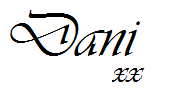OPINION: Are The Arts Too Elitist?
There's been a lot of talk over the last few weeks in the media regarding the supposed 'elitism' of areas of the arts. It began with MP Chris Bryant basically calling James Blunt a 'toff' and claiming that British culture was dominated by those from privileged backgrounds. Blunt hit back, stating that his background had actually been more of a hindrance than a help when starting out in the music business, and several opinion pieces appeared on each side of the argument.
One of these caught my eye as Julie Walters voiced her opinion on the side of Bryant:
I'm going to admit, though, that yes, there is elitism in the arts, in that everything isn't going to appeal to everyone, and that's a good thing! People who love musicals may not want to go to a band gig; those who visit art galleries and art installations may not want to visit the cinema. There's enough out there for everyone and trying to make out that the arts is discriminating against a particular area of society, whether that's James Blunt arguing that his upper-class background worked against him, or Julie Walters claiming that her working-class background worked against her, is naive and discriminatory in itself.

Image Source: theguardian.com
One of these caught my eye as Julie Walters voiced her opinion on the side of Bryant:
"People like me wouldn't have been able to go to college today. I could because I got a full grant. I don't know how you get into it now. Kids write to me all the time and I think "I don't know what to tell you"
As much as I love Ms. Walters, I have to disagree with her. I believe the arts represents the broader culture of society, both in training and on the stage. I am from a working class background and was lucky enough to get a grant for my course. In my day job I have come across several families whose children are desperate to go to an arts college but because their income is slightly over the threshold, they have been unable to apply for a grant and therefore cannot afford the training. This is a problem: talented students unable to attend college because they are considered 'too privileged.
Certain aspects of the arts have always been considered highbrow or inaccessible, such as Opera and Ballet. There are many initiatives in place to try and break down these barriers, such as ENO offering cut price tickets to students, or the Royal Ballet conducting classes with schools from disadvantaged areas. This is not elitist at all: this is the spirit of inclusion!
Image Source: IMDb.com
Ms. Walters goes on to claim that writers, too, are shunning the working-class:
"Working class kids aren't represented. Working class life is not referred to..."
Again, I disagree wholeheartedly. Have a look at many prime-time television dramas. Yes we have the ubiquitous 'Downton Abbey' and the forthcoming 'Indian Summers' (which I can't wait for!) but we also have the new 'Cucumber/Banana/Tofu', shows like 'The Endz' and 'Youngers' which depict children from lower-income backgrounds as just a couple that I thought of off the top of my head.
On stage, too, new works are depicting the harsh brutalities of regular life, or the comedy of it: '3 Winters', 'Rules For Living', ' The Separation' and 'The Royale' are all plays that are either showing now in London or are coming this season, and show very different aspects of 'normal' life, without a 'toff' in sight. Re-workings of established plays are depicting the working class and transposing what can be considered to be high-brow into a truly accessible production, as was the case with the production of 'Othello' I reviewed a couple of weeks ago.
Yes it's true that many of our television personalities or stage actors do come from privileged backgrounds: a lot of the top comic actors came through Cambridge Footlights group, but I would argue that there are equally as many performers who are from working class roots; Jessie J, Tinie Tempah, N-Dubz, Daniel Craig, and many more.
I'm going to admit, though, that yes, there is elitism in the arts, in that everything isn't going to appeal to everyone, and that's a good thing! People who love musicals may not want to go to a band gig; those who visit art galleries and art installations may not want to visit the cinema. There's enough out there for everyone and trying to make out that the arts is discriminating against a particular area of society, whether that's James Blunt arguing that his upper-class background worked against him, or Julie Walters claiming that her working-class background worked against her, is naive and discriminatory in itself.





Comments
Post a Comment